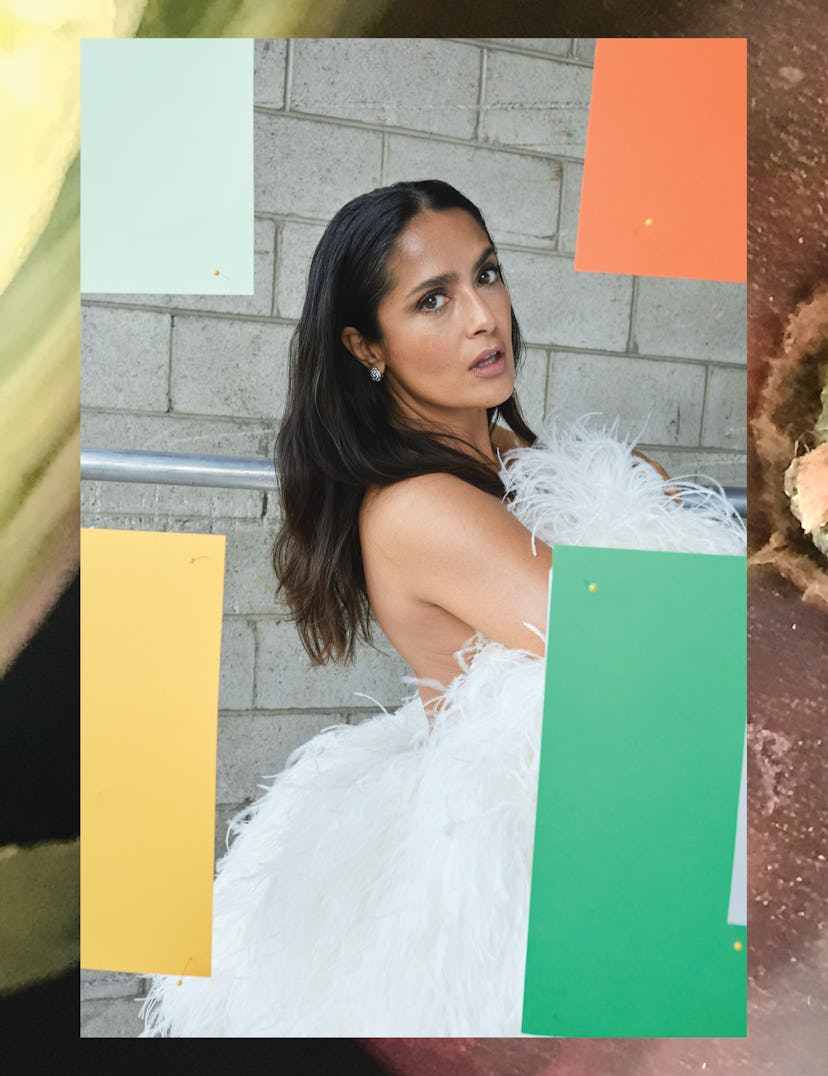Salma Hayek on Harvey Weinstein’s Response to Her Sexual Harassment Allegations Against Him: “If You Are a Woman of Color, People Believe in You Less”
The actress, who described the physical and emotional threats she endured making Frida in an op-ed last year, weighs in on the racial dimension of Weinstein’s response.

Though the Cannes Film Festival has not historically been a particularly welcoming place to women artists—over the course of its nearly-century-long history, it has programmed just 82 films by women directors in its competition slate, compared with the estimated 1,645 films by men that have appeared in the same program; last year, Jessica Chastain described its representation of women as “disturbing”—this year, there has been a pronounced shift. On Saturday night, Cate Blanchett and Ava DuVernay led a procession of 82 women, representing those 82 filmmakers in the competition slate, down the red carpet leading up to the Palais des Festivals in a silent demonstration in favor of gender parity in filmmaking. And on Sunday, Salma Hayek, who was among the protesters Saturday night, opened up about Harvey Weinstein’s response to the essays she and Lupita Nyong’o wrote describing their experiences with the now-disgraced producer.
Last year, Hayek wrote an incredibly candid op-ed for the New York Times detailing the all-too-personal struggle to make her Oscar-winning film Frida. In the piece, she describes the emotional abuse to which Weinstein subjected her throughout the filmmaking process, proposing that it was her friendships with Robert Rodriguez and Elizabeth Avellan, as well as with Quentin Tarantino and George Clooney, that “saved me from being raped.” Weinstein demanded same-sex sex scenes and full-frontal nudity, made absurd demands of Hayek seemingly intended to prevent her from completing the film, and approached her with all the sexual requests that have become familiar hallmarks of his predatory behavior. “With every refusal came Harvey’s Machiavellian rage,” she wrote. She eventually got Frida made, mostly on her terms, but not without confronting a battery of threats—both physical and psychological—in the process.

While Weinstein had largely avoided directly responding to the allegations from many actresses, including Gwyneth Paltrow, Cara Delevingne, and Angelina Jolie, Hayek explained she thought he singled her and Nyong’o out for response because, as women of color, “we are the easiest to get discredited,” as she said at Variety’s Women in Motion panel, crediting the strategy to Weinstein’s legal team. “It is a well-known fact that, if you are a woman of color, people believe in you less.” (Hayek is not the first to remark on the racial dimension of Weinstein’s response to the myriad allegations of sexual harassment and assault against him.)
Hayek went on to discuss the landscape for women in Hollywood more broadly at Sunday’s panel. “It’s going to take a while,” she said, when asked about pay disparity. But still, she encouraged: “Be impatient. Continue with the frustration, because you have to be impatient and patient at the same time.” That is, the change will take time, but it’s only through relentlessly pushing forward that that change will be wrought at all.
“We should have been angrier sooner,” she added. (This echoes her Weinstein piece, in which she wrote, “I had brainwashed myself into thinking it was over.”) “More than angrier, because I think we were all angry, we should have come together, because that’s what’s made a difference.”
Related: Salma Hayek Says Harvey Weinstein Threatened to Kill Her for Rebuffing Him
Salma Hayek Never Needed Harvey Weinstein: A Look Back at 15 of Her Most Iconic Roles
Connie Britton and Salma Hayek in “Beatriz at Dinner”, 2017. Image courtesy of IMDB.
Salma Hayek and Eric Mabius in “Ugly Betty”, 2006. Image courtesy of IMDB.
Ashley Judd and Salma Hayek in “Frida”, 2002. Image courtesy of (c) Miramax / Everett Collection.
Salma Hayek as Frida Kahlo in “Frida”, 2002. Image courtesy of ©Miramax Films / Everett Collection.
Salma Hayek in “Desperado”, 1995. Image courtesy of Everett Collection.
Chris Rock and Salma Hayek in “Dogma”, 1999. Image courtesy of ©Lions Gate Films / Everett Collection.
Salma Hayek in “Savages”, 2012. Image courtesy of Universal Pictures / IMDB.
Salma Hayek in “El Callejón de los Milagros”, 1995. Image courtesy of IMDB.
Salma Hayek in “54”, 1998. Image courtesy of © Miramax Films/ Everett Collection.
Salma Hayek in ” In the Time of the Butterflies”, 2001. Image courtesy of Metro-Goldwyn-Mayer Studios Inc. / IMDB.
Salma Hayek and Mathieu Demy in “Americano”, 2011. Image courtesy of ©MPI Media Group / Everett Collection.
Vincent D’Onofrio, Salma Hayek, and Thomas Jane in “The Velocity of Gary”, 1998. Image courtesy of (c)Columbia Tristar / Everett Collection.
Will Smith and Salma Hayek in “Wild Wild West”, 1999. Image courtesy of Everett Collection.
Salma Hayek in “Chain of Fools”, 2000. Image courtesy of Everett Collection.
Jon Tenney, Matthew Perry and Salma Hayek in “Fools Rush In”, 1997. Image courtesy of Everett Collection.
Salma Hayek in “Bandidas”, 2006, Image courtesy of (c) 20th Century Fox Film Corp. / Everett Collection.